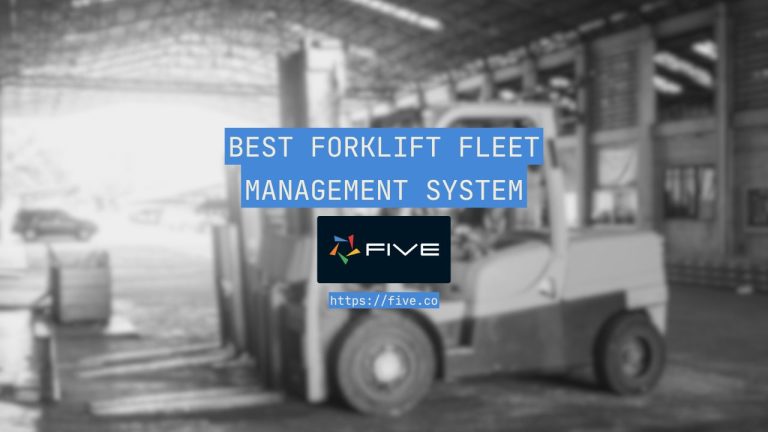Best Book Catalogue Software for 2025
Managing a growing book collection can quickly become overwhelming. Whether you’re organizing a home library, a small community reading club, or a professional collection, books have a way of multiplying beyond control. That stack by the bedside turns into piles throughout the house, and suddenly you’re buying duplicates because you’ve forgotten what you already own.
Thankfully, specialized book catalogue software solves these common challenges. This comprehensive guide examines the top solutions available in 2025, based on extensive testing and feedback from hundreds of avid readers, serious collectors, and professional librarians.
Why Dedicated Book Catalogue Software Is Essential
General organizing apps simply don’t address the unique needs of book collections. Books come with specific attributes—ISBNs, editions, authors, genres, reading status, publication dates—that require specialized handling. What makes good cataloging software worth the investment?
The right book catalogue software delivers multiple benefits:
- Complete Collection Tracking: Know exactly what you own and where each book is located
- Multi-Dimensional Organization: Sort by genre, author, series, reading status, or custom categories
- Reading History: Maintain a searchable record of what you’ve read and your thoughts on each title
- Collection Valuation: Understand the financial value of rare or collectible books in your library
Each of these capabilities transforms how readers interact with their collections, turning disorganized stacks into accessible, manageable libraries. Here are the standout solutions that make cataloguing a pleasure rather than a chore.
1. Five’s Book Catalogue Application
Best for: Book collectors of all levels seeking a comprehensive, cloud-based solution without technical headaches
Five’s Book Catalogue Application tops the list by striking the perfect balance between powerful features and genuine ease of use. Users consistently report being operational within minutes, even with collections numbering thousands of volumes.
Key Strengths:
- Effortless Data Entry: Lightning-fast cataloguing
- Rich Metadata Integration: Import cover images, descriptions, publisher information, and reviews from multiple sources
- Cross-Device Accessibility: Cloud hosting enables access to your complete catalogue from any device, anywhere
- Lending Management: Comprehensive loan tracking with due date reminders prevents permanently “lost” books
- Zero Technical Barriers: No installation, configuration, or maintenance required—just an internet connection
What distinguishes Five is its scalability. While beginners appreciate its intuitive interface, serious collectors value the depth of cataloguing options that reveal themselves as collections grow. The system evolves with user needs without ever becoming overwhelming.
Five’s Ready-To-Use Library System
Access our fully featured, scalable Library Database Application and professionalize your library management. The application is cloud-hosted and can be accessed from any device (desktop, tablet and mobile), anywhere and at any time. There is no hardware cost, no installation or maintenance burden. All that is needed to access the system is an Internet connection.
2. LibraryThing
Best for: Social readers who want to connect with a community around their books
LibraryThing has cultivated a passionate following by emphasizing the social dimensions of reading. With over 2.5 million registered users and more than 155 million catalogued books, it offers both powerful organization tools and a thriving community.
Key Strengths:
- Multiple Import Methods: Cataloguing tools that support ISBN entry, barcode scanning, and bulk imports from spreadsheets
- Community Integration: Rich social features connecting readers with similar collections and reading preferences
- Advanced Discovery Engine: Recommendation algorithms based on statistical analysis of collection overlap with like-minded readers
- Bibliographic Depth: Extensive book data including multiple editions, translations, and international publishing information
- Value Pricing: Lifetime membership option and generous free tier supporting up to 200 books
- Unique Cataloguing Fields: Special features for rare book collectors including provenance tracking and condition notes
The recommendation engine stands as LibraryThing’s crowning achievement. Unlike algorithmic suggestions from retailers, LibraryThing’s recommendations derive from actual collection similarities between users, resulting in remarkably precise and often surprising suggestions that align with reader tastes.
The community features extend well beyond basic social networking. The “Talk” discussion forums host everything from literary analysis to genre-specific conversations, while “Local” connects members to nearby book events, independent bookstores, and fellow collectors. These elements transform solo reading into a connected experience that enhances discovery and discussion.
3. Goodreads
Best for: Casual readers focusing on tracking reading progress rather than managing physical collections
While Goodreads doesn’t offer the most robust cataloguing functionality, its massive scale (over 125 million users) and tight integration with Amazon’s ecosystem secure its place among essential book organizing tools. It serves as an ideal entry point for readers new to digital cataloguing.
Key Strengths:
- Unparalleled Community Scale: Access to the largest reader community online with over 1.5 billion books added and 80 million reviews
- Reading Gamification: Annual reading challenges with progress tracking that has motivated millions to establish and maintain reading habits
- Frictionless Onboarding: Intuitive interface requiring minimal setup and offering immediate value
- Zero Cost Barrier: Free access to all core features without limitations on collection size
- E-Reader Integration: Seamless synchronization with Kindle devices and apps for automatic progress tracking and highlight collection
- Author Interaction: Direct connection with over 250,000 authors who maintain profiles and interact with readers
Goodreads particularly excels at tracking the reading journey rather than cataloguing physical collections. Its annual reading challenges have evolved into a cultural touchstone, with over 4 million participants in the 2024 challenge setting concrete reading goals and tracking their progress throughout the year.
The platform’s straightforward approach functions as both strength and limitation. For readers primarily focused on tracking completed books, current reading, and future reading plans, Goodreads provides an ideal solution. However, serious collectors requiring detailed cataloguing features for physical libraries may find its capabilities insufficient for comprehensive collection management.
4. Libib
Best for: Visual organizers who appreciate beautiful interfaces and multiple media types
Libib distinguishes itself through an exceptionally aesthetic approach to cataloguing. Its interface transforms the organizational experience from administrative task to visual pleasure, resembling a curated modern bookstore rather than a traditional database.
Key Strengths:
- Gallery-Quality Visuals: Stunning visual interface that showcases cover art in multiple customizable display formats
- Cross-Media Cataloguing: Seamless support for books, movies, music, and video games within a unified system
- Public Sharing Options: Simple creation of public-facing libraries with custom URLs for sharing collections online
- Flexible Classification: Intuitive tagging system supporting both standardized and personalized organizational schemes
- Accessible Pricing: Generous free tier supporting up to 5,000 items across 100 different “libraries” or collections
- Mobile-Friendly Design: Fully responsive interface that maintains visual appeal across all device sizes
Libib transforms cataloguing from a purely functional activity into a creative expression. The visual approach produces digital shelves that invite browsing and rediscovery of forgotten titles. Users report spending more time engaging with their collections after moving to Libib precisely because the interface makes exploration enjoyable.
The multi-media support proves invaluable for collectors who maintain diverse entertainment libraries. Rather than using separate systems for different media types, Libib provides consistent cataloguing tools across books, films, music, and games. This unified approach enables cross-media connections and collections organized by theme rather than format.
How to Select the Perfect Book Catalogue Software
With multiple excellent options available, selecting the right cataloguing solution requires careful consideration of your specific needs. Here’s a detailed decision framework to guide your selection:
1. Collection Size and Growth
- Under 100 Books: Simpler tools like Goodreads provide sufficient functionality without overwhelming features
- 100-1,000 Books: Mid-range solutions like Libib offer the right balance of features and simplicity
- 1,000+ Books: Comprehensive platforms like Five or LibraryThing provide the advanced organization and search capabilities necessary for large collections
- Growth Trajectory: Consider not just current size but anticipated growth over 3-5 years to avoid migration headaches
2. Usage Pattern and Device Preferences
- Desktop-Focused Collectors: LibraryThing offers the most powerful features when used primarily on larger screens
- Multi-Device Users: Five provides the most consistent experience across all platforms
- On-Location Cataloguing: BookBuddy’s offline capabilities excel when adding books away from reliable internet
3. Social and Community Engagement
- Discovery Focus: Goodreads offers the largest community for finding new reads
- Discussion Oriented: LibraryThing provides the most substantive literary conversations
- Private Collections: Five offers excels at personal, private cataloguing
- Local Connections: LibraryThing’s Local feature connects with nearby events and readers
Advanced Features Worth Considering
Beyond basic cataloguing functionality, modern book management software offers sophisticated capabilities that can transform how you interact with your collection:
Data Import and Export Options
The ability to move data between systems protects your cataloguing investment. Five and LibraryThing offer the most comprehensive import/export options, supporting multiple formats including CSV, Excel, and standard bibliographic formats.
Reading Analytics
For those who enjoy quantifying their reading life, certain platforms excel at analytics:
- Goodreads tracks pages read, books completed, and reading streaks
- Five provides detailed genre analysis and reading velocity metrics
- LibraryThing offers comparative statistics against other users with similar collections
Collection Valuation
Serious collectors benefit from tools that help track the financial value of their libraries:
- LibraryThing integrates with book pricing databases for approximate valuation
- Five offers custom fields for purchase price, current value, and appreciation tracking
The Impact of Digital Cataloguing
For book lovers seeking to bring order to their collections, modern cataloguing solutions offer unprecedented control and insight. Five’s Book Catalogue Application represents the ideal balance for most users, combining powerful features, intuitive operation, and flexibility that accommodates both casual readers and serious collectors.
The right cataloguing system transforms a random accumulation of books into a curated library that reflects your intellectual journey and reading identity. In an age of digital distraction, these tools deepen connection to physical books and the ideas they contain.


